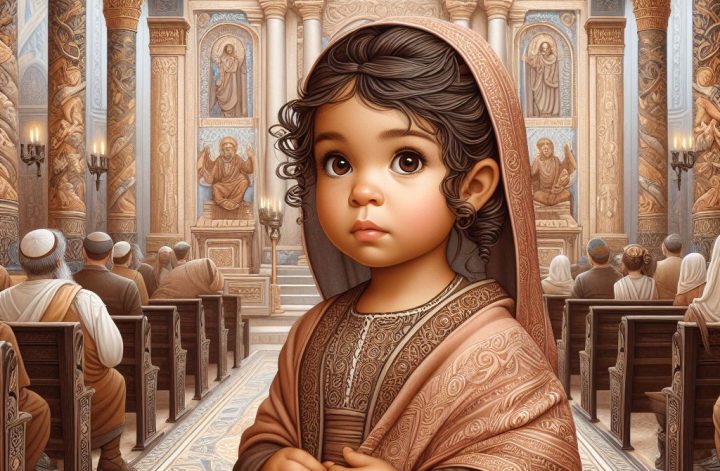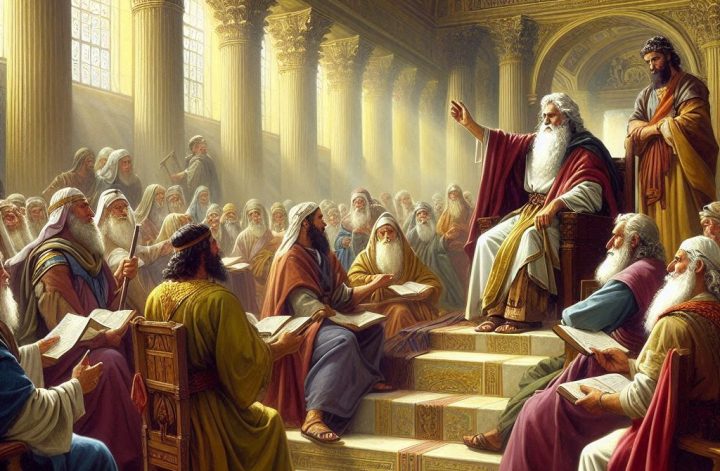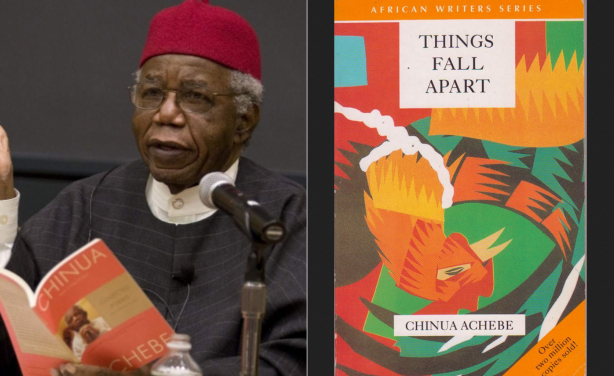John the Baptist was a weird but essential figure in the ministry of Jesus. The Gospels suggest that the men are cousins through their mothers. John’s parents were Zechariah and Elizabeth. Jesus’ parents need no introduction. The Gospels, especially Matthew and Luke, only go as far back in their stories as when Joseph and Mary were already betrothed. Hence, we have no biblical records of the birth of Mary or Joseph.
The Quran, on the other hand, has quite a bit to say about the birth of Mary, her childhood, and, as I will explain, how Joseph was chosen for her as a husband. We find this story in Quran 3:35-44,
Surah Aal-e-Imran, Verse 35:
إِذْ قَالَتِ امْرَأَتُ عِمْرَانَ رَبِّ إِنِّي نَذَرْتُ لَكَ مَا فِي بَطْنِي مُحَرَّرًا فَتَقَبَّلْ مِنِّي إِنَّكَ أَنتَ السَّمِيعُ الْعَلِيمُ
When a woman of Imran said: My Lord! Surely I vow to Thee what is in my womb, to be devoted (to Thy service); accept therefore from me, surely Thou art the Hearing, the Knowing.
Surah Aal-e-Imran, Verse 36:
فَلَمَّا وَضَعَتْهَا قَالَتْ رَبِّ إِنِّي وَضَعْتُهَا أُنثَىٰ وَاللَّهُ أَعْلَمُ بِمَا وَضَعَتْ وَلَيْسَ الذَّكَرُ كَالْأُنثَىٰ وَإِنِّي سَمَّيْتُهَا مَرْيَمَ وَإِنِّي أُعِيذُهَا بِكَ وَذُرِّيَّتَهَا مِنَ الشَّيْطَانِ الرَّجِيمِ
So when she brought forth, she said: My Lord! Surely I have brought it forth a female — and Allah knew best what she brought forth– and the male is not like the female, and I have named it Marium, and I commend her and her offspring into Thy protection from the accursed Shaitan.
Surah Aal-e-Imran, Verse 37:
فَتَقَبَّلَهَا رَبُّهَا بِقَبُولٍ حَسَنٍ وَأَنبَتَهَا نَبَاتًا حَسَنًا وَكَفَّلَهَا زَكَرِيَّا كُلَّمَا دَخَلَ عَلَيْهَا زَكَرِيَّا الْمِحْرَابَ وَجَدَ عِندَهَا رِزْقًا قَالَ يَا مَرْيَمُ أَنَّىٰ لَكِ هَٰذَا قَالَتْ هُوَ مِنْ عِندِ اللَّهِ إِنَّ اللَّهَ يَرْزُقُ مَن يَشَاءُ بِغَيْرِ حِسَابٍ
So her Lord accepted her with a good acceptance and made her grow up a good growing, and gave her into the charge of Zakariya; whenever Zakariya entered the sanctuary to (see) her, he found with her food. He said: O Marium! whence comes this to you? She said: It is from Allah. Surely Allah gives to whom He pleases without measure.
Surah Aal-e-Imran, Verse 38:
هُنَالِكَ دَعَا زَكَرِيَّا رَبَّهُ قَالَ رَبِّ هَبْ لِي مِن لَّدُنكَ ذُرِّيَّةً طَيِّبَةً إِنَّكَ سَمِيعُ الدُّعَاءِ
There did Zakariya pray to his Lord; he said: My Lord! grant me from Thee good offspring; surely Thou art the Hearer of prayer.
Surah Aal-e-Imran, Verse 39:
فَنَادَتْهُ الْمَلَائِكَةُ وَهُوَ قَائِمٌ يُصَلِّي فِي الْمِحْرَابِ أَنَّ اللَّهَ يُبَشِّرُكَ بِيَحْيَىٰ مُصَدِّقًا بِكَلِمَةٍ مِّنَ اللَّهِ وَسَيِّدًا وَحَصُورًا وَنَبِيًّا مِّنَ الصَّالِحِينَ
Then the angels called to him as he stood praying in the sanctuary: That Allah gives you the good news of Yahya verifying a Word from Allah, and honorable and chaste and a prophet from among the good ones.
Surah Aal-e-Imran, Verse 40:
قَالَ رَبِّ أَنَّىٰ يَكُونُ لِي غُلَامٌ وَقَدْ بَلَغَنِيَ الْكِبَرُ وَامْرَأَتِي عَاقِرٌ قَالَ كَذَٰلِكَ اللَّهُ يَفْعَلُ مَا يَشَاءُ
He said: My Lord! when shall there be a son (born) to me, and old age has already come upon me, and my wife is barren? He said: even thus does Allah what He pleases.
Surah Aal-e-Imran, Verse 41:
قَالَ رَبِّ اجْعَل لِّي آيَةً قَالَ آيَتُكَ أَلَّا تُكَلِّمَ النَّاسَ ثَلَاثَةَ أَيَّامٍ إِلَّا رَمْزًا وَاذْكُر رَّبَّكَ كَثِيرًا وَسَبِّحْ بِالْعَشِيِّ وَالْإِبْكَارِ
He said: My Lord! appoint a sign for me. Said He: Your sign is that you should not speak to men for three days except by signs; and remember your Lord much and glorify Him in the evening and the morning.
Surah Aal-e-Imran, Verse 42:
وَإِذْ قَالَتِ الْمَلَائِكَةُ يَا مَرْيَمُ إِنَّ اللَّهَ اصْطَفَاكِ وَطَهَّرَكِ وَاصْطَفَاكِ عَلَىٰ نِسَاءِ الْعَالَمِينَ
And when the angels said: O Marium! surely Allah has chosen you and purified you and chosen you above the women of the world.
Surah Aal-e-Imran, Verse 43:
يَا مَرْيَمُ اقْنُتِي لِرَبِّكِ وَاسْجُدِي وَارْكَعِي مَعَ الرَّاكِعِينَ
O Marium! keep to obedience to your Lord and humble yourself, and bow down with those who bow.
Surah Aal-e-Imran, Verse 44:
ذَٰلِكَ مِنْ أَنبَاءِ الْغَيْبِ نُوحِيهِ إِلَيْكَ وَمَا كُنتَ لَدَيْهِمْ إِذْ يُلْقُونَ أَقْلَامَهُمْ أَيُّهُمْ يَكْفُلُ مَرْيَمَ وَمَا كُنتَ لَدَيْهِمْ إِذْ يَخْتَصِمُونَ
This is of the announcements relating to the unseen which We reveal to you; and you were not with them when they cast their pens (to decide) which of them should have Marium in his charge, and you were not with them when they contended one with another.
So, the Quran here begins with Mary’s conception. Mary’s mother, following the birth of her baby, says an unusual prayer: that God will protect the newborn and its future offspring, apparently referencing Jesus. (The comment that a male child is not like a female child is probably a relic of the sexism of the time.) Verse 37 then says that Mary was given over to Zechariah to raise. (This is reminiscent of the ancient practice that the boy Samuel experienced. After being weaned, he was left with a priest, Eli, to grow up and serve in the temple.) Like Samuel, God was with the little girl Mary as he supernaturally provided for her.
The following verses up to 41 tell the story of Zechariah, in old age, asking for the blessing of a child. This story is covered in the Canonical Gospels, which, of course, predate the Quran by some 600 years. Then, the story turns back to Mary. In verse 42, Mary is no longer an infant or a little girl, and Allah subsequently charges her to be loyal.
Verse 44 is a bit unclear. We know there was no competition regarding who would raise Mary. As verse 37 says, “Her Lord accepted her with a good acceptance and made her grow up a good growing, and gave her into the charge of Zakariya.” As it will soon be made clear, this verse talks about choosing a husband for Mary in a lots-casting procedure. The Quran says they cast pens (that is, quills) – a slight modification of an older source.
Much of this story is found in the Apocryphal work, Protevangelium of James, dated to the second century – that is, 500 years before the Quran. Better known as the Gospel of James, this work is another infancy Gospel detailing the conception of Mary, upbringing, and marriage to Joseph. It is an influential material for Mariology, the study of Mary. Here is an excerpt:
CHAPTER 7
(1) She cared for the child for months. When the
child turned two years old, Joachim said, “Let’s
take her to the temple of the Lord so we can
relate the message we were given.”
(2) And Anna said, “Let’s wait until the third year,
so that she will not seek her father or mother.”
(3) And Joachim said, “Let’s wait.”
(4) When the child turned three, Joachim said,
“Let’s call the pure women of the Hebrews. (5)
Let them take up lamps and light them so that the
child will not turn back and her heart will never be
led away from the temple of the Lord.” (6) And
they did these things until they went up to the
temple of the Lord.
(7) And the priest welcomed her. Kissing her, he
blessed her and said, “The Lord God has
magnified your name for all generations; (8)
through you the Lord will reveal deliverance to the
children of Israel in the last days.”
(9) And he set her down on the third step of the
altar and the Lord God poured grace upon her.
(10) She danced triumphantly with her drinks and
every house in Israel loved her.
CHAPTER 8
(1) And her parents went down, marveling at and
praising and glorifying the Lord God because the
child had not turned back to look at them. (2)
While Mary was in the temple of the Lord, she
was fed like a dove and received food from the
hand of an angel.
(3) When she turned twelve, a group of priests
took counsel together, saying, “Look, Mary has
been in the temple of the Lord twelve years. (4)
What should we do about her now, so that she
does not defile the sanctuary of the Lord our
God?” (5) And they said to the high priest, “You
have stood at the altar of the Lord. Go in and pray
about her. And if the Lord God reveals anything to
you, we will do it.”
(6) And the priest went in taking the vestment with
twelve bells into the holy of holies and prayed
about her. Suddenly, an angel of the Lord stood
before him, saying, “Zachariah, Zachariah, depart
from here and gather the widowers of the people
and let each one carry a staff. (8) And the one
whom the Lord God points out with a sign, she will
be his wife.” (9) So the heralds went out to the
whole surrounding area of Judea and the trumpet
of the Lord rang out and all the men rushed in.
CHAPTER 9
(1) Throwing down his ax, Joseph went out to meet
them. (2) And after they had gathered together
with their rods, they went to the high priest. (3)
After receiving everyone’s rod, the high priest
went into the temple and prayed. (4) When he was
finished with the prayer, he took the rods and went
out and gave them to each man, (5) but there was
no sign among them. Finally, Joseph took his rod.
(6) Suddenly, a dove came out of the rod and stood
on Joseph’s head. (7) And the high priest said,
“Joseph! Joseph! You have been chosen by lot to
take the virgin into your own keeping.”
Notice that Chapter 9 says they cast rods to determine who Mary should marry. In his book, The Quran and Bible, Gabriel Reynolds observes that the Arabic word for quills, “aqlaam” derives from the Greek “kalamos” which means “Reeds” or rods (Reynolds, 119). So, the Quranic story of pens-casting recalls this fuller rod-casting that eventually revealed Joseph as the divinely chosen husband for Mary.
It is worth stressing again. The claim is not that the Quran directly derived its story from the Infancy Gospel of James. On the contrary, the claim is that such stories as found in this pseudogospel were bound to morph as they traveled through space and time. In any case, the relationship between this gospel and the Quranic account above is crystal clear. The Infancy Gospel of James was recognized as being fictional some 200 years before the Quran.
We are now ready to wrap things up in the final Part of the series.
Works Cited
“Protevangelium of James.” Translated by Peter Kirby. Early Christian Writings. Early Christian writings.com.
Reynolds, Gabriel Said. The Qurʾān and the Bible: Text and Commentary. Yale University Press, 2018.




